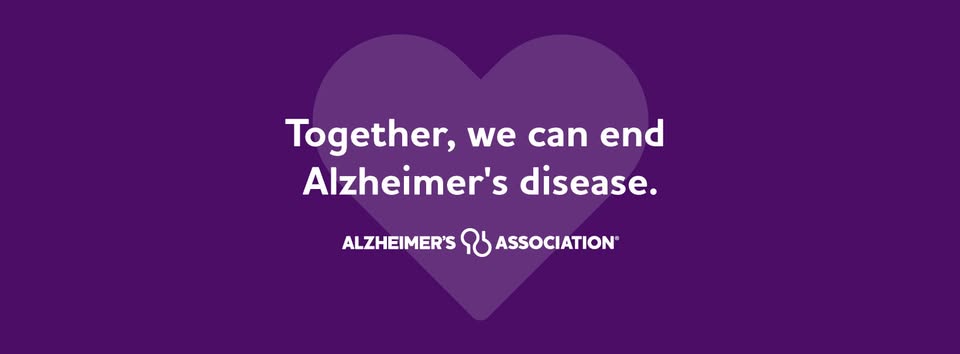Navigating an Alzheimer’s Diagnosis: A Daughter’s Journey Through Caregiving and Advocacy
A Diagnosis That Changed Everything
When Lynnea Hutton heard the words, “There’s nothing more to do,” after her mother Roslyn Greene’s Alzheimer’s diagnosis, she felt a mix of shock and frustration. She knew from experience that those words weren’t true. Alzheimer’s had already left a tragic mark on her family—her grandfather had passed from the disease, and her aunt had been diagnosed with vascular dementia.
For Hutton, this wasn’t the end of the road. It was just the beginning of a difficult but important journey—one filled with advocacy, research, and support.
Finding Hope Beyond the Diagnosis
Many families facing an Alzheimer’s diagnosis feel lost, uncertain of what comes next. Hutton, however, took action. On a friend’s recommendation, she reached out to the Alzheimer’s Association, a decision she now believes was one of the most important steps in navigating her mother’s condition.
That call led to:
✅ Support groups for both Hutton and her mother’s primary caregiver, John.
✅ Educational resources on treatment options and disease progression.
✅ Fundraising opportunities like the Denver Walk to End Alzheimer’s, where Hutton raises money for research and awareness.
By taking these steps, she turned fear and uncertainty into a proactive plan—something every caregiver can benefit from.
A Family’s Battle with Alzheimer’s: The Emotional Toll
For Hutton’s family, Alzheimer’s isn’t just a diagnosis—it’s a family legacy.
She remembers being a teenager and watching her grandmother struggle to care for her grandfather as his condition worsened. It was heartbreaking. She saw firsthand how emotionally and physically exhausting caregiving can be, and she knew that planning ahead was crucial.
Her mother, Roslyn, had long feared inheriting the disease. When the diagnosis came, it was devastating—but not unexpected. The family immediately sought a second opinion, hoping to explore every available treatment option.
Exploring Treatment and Medication Options
Early intervention is key in Alzheimer’s, and Hutton’s mother was prescribed Aricept to help manage symptoms. However, like many Alzheimer’s patients, she struggled with side effects.
Now, the family is researching new FDA-approved medications that may help slow the progression of the disease. Hutton remains hopeful that these emerging treatments will offer a better quality of life for her mother.
"This is not a disease where you just accept the diagnosis and do nothing. We have to advocate, research, and explore every option available." — Lynnea Hutton
The Hidden Toll of Caregiving
Navigating Insurance and Workplace Challenges
Hutton is the Vice President of People & Culture for the University of Colorado Foundation, so she understands insurance benefits and workplace policies better than most. But even with her expertise, she has struggled to help her mother and stepfather navigate the complex healthcare system.
"We don’t realize how hard it is to plan for caregiving until we’re in it. Medical leave is not enough. Long-term care insurance often falls short. Few companies are really prepared for what this means for employees."
Why Employers Need to Do More
Companies often accommodate new parents or employees caring for sick children. But caregiving for aging parents is a different challenge—one that is becoming more common as the population ages.
Hutton believes workplaces need to:
✅ Offer more flexible leave policies for caregivers.
✅ Educate employees about long-term care planning before they’re in crisis mode.
✅ Provide mental health support for employees balancing work and caregiving.
For caregivers juggling full-time jobs, raising children, and managing an aging parent’s care, the stress can be overwhelming. Workplace policies need to evolve to meet this growing reality.
The Higher Risk for Black Americans
Hutton’s family’s battle with Alzheimer’s disease is not just personal—it’s also part of a larger, systemic health disparity.
Alzheimer’s Risk and Health Inequities
Research shows that:
- Black Americans are twice as likely as white Americans to develop Alzheimer’s.
- Hispanic Americans are 50% more likely to develop the disease.
Scientists believe higher rates of cardiovascular disease—including high blood pressure, diabetes, and stroke—may contribute to these disparities. Social and economic factors, such as unequal access to healthcare and preventative screenings, also play a role.
Hutton’s advocacy isn’t just for her mother—it’s for all families facing Alzheimer’s, particularly those in underserved communities.
Staggering Facts About Alzheimer’s Caregiving
Caring for a loved one with Alzheimer’s is emotionally and financially draining. Here’s what the numbers show:
- In 2023, 11.5 million family caregivers in the U.S. provided 18.4 billion hours of unpaid care, valued at $346.6 billion.
- Volunteer caregivers provide an average of 31 hours of care per week—over 1,600 hours per year.
- By 2024, the cost of professional Alzheimer’s care in the U.S. was projected to reach $360 billion.
These figures don’t even account for the emotional, mental, and physical toll on families. The need for better support, research, and resources has never been greater.
How to Find Help: Alzheimer’s Association Resources
If you or someone you love is facing an Alzheimer’s diagnosis, you’re not alone. The Alzheimer’s Association offers:
24/7 Helpline: Call 800-272-3900 for expert guidance.
Educational programs: Learn about treatment, caregiving, and financial planning.
Support groups: Find a community of caregivers who understand your journey.
Fundraising events: Join initiatives like the Walk to End Alzheimer’s to support research and advocacy.
Hutton’s family found hope and direction through these resources, and she encourages others to reach out as soon as they receive a diagnosis.
A Journey of Love and Advocacy
For Hutton, caring for her mother is both a challenge and a calling. She is determined to:
✔️ Support her mother’s care with love and advocacy.
✔️ Raise awareness about the realities of Alzheimer’s caregiving.
✔️ Push for workplace changes that recognize the needs of caregivers.
Whether you’re just beginning this journey or deep in the caregiving trenches, remember: You are not alone, and there is help available. 💜
Get Involved & Learn More
Visit alz.org for resources and support.
Call 800-272-3900 for 24/7 help.
Join a Walk to End Alzheimer’s event in your area.
Together, we can fight for a cure, support caregivers, and make life better for those living with Alzheimer’s.
Supporting the Fight Against Alzheimer’s. Your Referrals Help Our Seniors
We are on a mission to raise money for The Alzheimer’s Association. Who do you know considering buying or selling a home that you can refer to our Real Estate sales Team? Not only will they benefit from our award-winning service, but a very worthy cause will benefit as well. To refer someone, give us a call at 929-203-9101 You can help us help the community!
Your Referrals Really Do Help…
Every referral helps, and together, we can make an impact in the fight against this disease. 929-203-9101
🧠 Frequently Asked Questions (FAQs)
Navigating an Alzheimer’s Diagnosis: A Daughter’s Journey Through Caregiving and Advocacy
1. What should families do immediately after an Alzheimer’s diagnosis?
The first step is to seek education and support. Families should contact the Alzheimer’s Association (800-272-3900) for information on care planning, local resources, and support groups. Connecting early with healthcare professionals and advocacy organizations helps families make informed decisions about treatment, caregiving, and financial planning.
2. How can caregivers find emotional and mental health support?
Caring for someone with Alzheimer’s can be overwhelming. The Alzheimer’s Association offers free support groups, counseling referrals, and a 24/7 helpline. Many caregivers also benefit from respite care, therapy, and connecting with local caregiver communities for shared experiences and encouragement.
3. Are there new treatments available for Alzheimer’s disease?
Yes. In addition to traditional medications like Aricept, new FDA-approved drugs aim to slow cognitive decline by targeting amyloid buildup in the brain. Patients should consult their neurologist about emerging treatment options, ongoing research trials, and personalized care plans.
4. Why are Black and Hispanic Americans at higher risk for Alzheimer’s?
Research shows that Black Americans are twice as likely, and Hispanic Americans 50% more likely, to develop Alzheimer’s compared to white Americans. Factors such as cardiovascular disease, diabetes, high blood pressure, and limited access to healthcare contribute to this disparity. Advocacy, early screening, and education are key to reducing risk.
5. How can workplaces better support employees who are caregivers?
Employers can create more caregiver-friendly environments by offering flexible scheduling, extended family leave, and mental health resources. Educating employees about long-term care insurance and financial planning also helps families prepare for caregiving responsibilities before a crisis occurs.
6. What financial challenges do Alzheimer’s caregivers face?
Family caregivers often face lost wages, increased medical costs, and limited insurance coverage for long-term care. The Alzheimer’s Association can guide families toward financial planning tools, Medicaid support, and local resources to offset caregiving expenses.
7. How can families participate in Alzheimer’s advocacy or fundraising?
Families can join local Walk to End Alzheimer’s events, volunteer with their regional Alzheimer’s Association chapter, or create personal fundraising campaigns. Every contribution supports research, caregiver education, and vital community programs.
8. How does Your Home Sold Guaranteed Realty Advisors support the Alzheimer’s cause?
At Your Home Sold Guaranteed Realty Advisors LLC – The Hal Blake Team, a portion of every home sale is donated to The Alzheimer’s Association. When clients buy or sell with us, they directly help fund research and caregiver programs through our “Real Estate with a Purpose” initiative.
➡️ To refer someone who’s buying or selling a home, call 929-203-9101 or visit BlakeTeamReferrals.com.
Your referrals truly make a difference.
9. How can I get immediate help or learn more about Alzheimer’s?
You can:
-
Call the Alzheimer’s Association Helpline at 800-272-3900 for 24/7 support
-
Visit alz.org for educational materials and local chapter information
-
Join a Walk to End Alzheimer’s event near you
-
Connect with a local caregiver support group or care consultant

Categories
- All Blogs (370)
- Agent Recruiting (70)
- Buyer w/House to sell (33)
- For Home Buyers (81)
- For Home Sellers (90)
- How to Blogs (2)
- Lifestyle (23)
- Miscellaneous (1)
- Our Worthy Cause (52)
- Probate (41)
- Staten Island Neighborhoods (15)
- Staten Island Real Estate Market Update (5)
- TW EMAILS (6)
- Weekend Events (17)
Recent Posts










GET MORE INFORMATION

Broker | License ID: 10491210994
